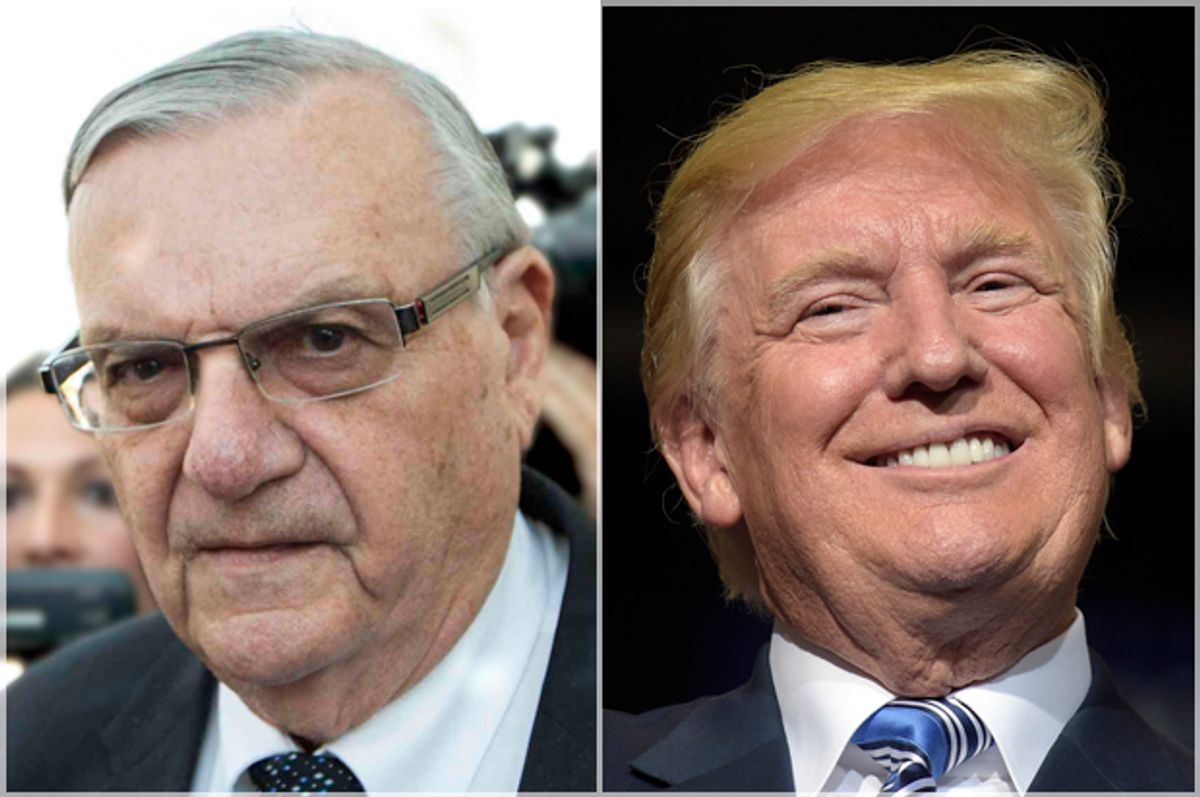Disgraced former Arizona sheriff Joe Arpaio may still face serious legal jeopardy — despite being one of Donald Trump's first political pardons as president.
On Tuesday, the U.S. Court of Appeals for the 9th Circuit ruled it would appoint a special prosecutor to argue that Arpaio's guilty verdict should remain on the books. Since the Justice Department under Jeff Sessions has refused to defend Arpaio's conviction for contempt of court, the new special prosecutor will.
Arpaio has called the court's ruling "totally improper" and said the court would be put in an "accusatory role." In July 2017, Arpaio was convicted of criminal contempt after he refused to obey an order from a judge to stop violating the fourth amendment rights of Latinos. Arpaio's attorney told Buzzfeed that the decision "raises a lot of disturbing questions about the neutrality of the court."
The former sheriff, who is now running for Senate, was pardoned last August by Trump. By that point, Arpaio had not even been sentenced, with his hearing still due in October. "Arpaio asked US District Judge Susan Bolton in Arizona to vacate the verdict, arguing that because he hadn't been sentenced and there was no final judgment in the case, he had lost the opportunity to appeal and challenge the guilty verdict," Buzzfeed reported.
Arpaio's request was ultimately denied by Bolton on Oct. 19, who wrote that Trump's pardon "does not erase a judgment of conviction, or its underlying legal and factual finding." The DOJ told the 9th Circuit in December that it would only "represent the government's interests" on appeal, but that Arpaio's motion to vacate should have been allowed, and it wouldn't defend Bolton's order.
The 9th Circuit ruled 2-1, and dissenting Judge Richard Tallman wrote "that it is unwise for this Court to use its authority to appoint a private attorney at this late stage to “prosecute” the appeal of a case the Government already won, in the face of the Government’s continued willingness to participate, and to countenance a surreptitious use of the vacatur appeal to pursue an untimely attack on the President’s constitutional authority to pardon," according to the ruling.
"But the constitutionality of the President’s pardon is not at issue in Arpaio’s current appeal; the denial of Arpaio’s motion for vacatur of his conviction is. The request is inappropriate. My colleagues’ decision to appoint separate counsel now is therefore ill-advised and unnecessary. I respectfully dissent," he added.



Shares